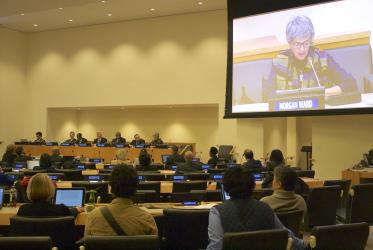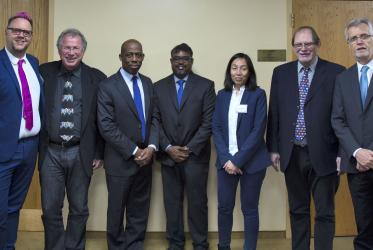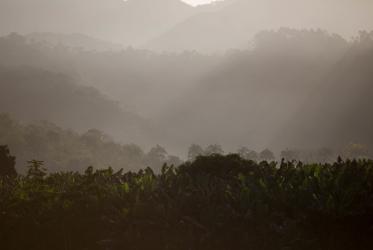Displaying 1 - 20 of 24
Churches should use their voice on climate change
26 February 2020
New economic architecture focus of New York meeting
22 April 2018
Protect the Amazon, urges WCC statement
22 November 2017
Emily Welty: tide of hope for a world free from nuclear weapons
19 September 2017
G20 summit: call to pray for peace in Hamburg
07 July 2017
Standing Rock decision ”Gospel news” for indigenous communities
08 December 2016
Eco-justice at stake for Standing Rock people in USA
07 November 2016
WCC general secretary addresses global Pentecostal gathering
09 September 2016
Reclaiming our humanity
23 June 2015













